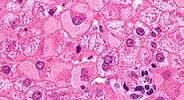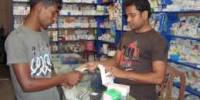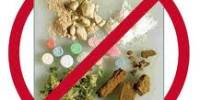“Prevention is better than cure
“Prevention is better than cure”, is a well-said quote knows by all of the people. Nevertheless, before we understand this quote in terms of health, we first need to know what prevention is and what is cure.
Prevention is the promotion of constructive lifestyles and norms that discourage drug use. It is achieved through the application of multiple strategies; it is an ongoing process that must relate to each emerging generation.
On the other hand, cure is to heal, to make well, and to restore to good health. Cures are easy to claim and, all too often, difficult to confirm, a time without recurrence of a disease so that the risk of recurrence is small, particularly in the past, a course of treatment. For example, take a cure at a spa.
The word cure comes from the Latin cure meaning care, concern or attention. The current use of the word cure is believed to reflect the belief that the right care, concern and attention were tantamount to a cure.
So “prevention is better than cure” This is a wide concept that represents that we can avoid many diseases if we take prior steps from the outsets. Previously governments of many countries emphasized on curing the patient but did not use to provide with information of prevention.
The procedure of prevention holds the key to success which includes many things. This includes good life style procedure that keeps us healthy. For instance, if we educate
our people that cleaning the hands can prevent diarrhea and cholera then people will follow it. Like this there are many steps that can help us to get rid of the 80% common diseases. We can include many hygienic procedures from the primary level education to upper level to spread this message.
Many developing countries do not have sufficient hospitals, educated doctors and useful equipments for curing patients. Even in the western countries, some people cannot support them with highly unlikely diseases. For example, if people had stopped smoking they would avoid deadly disease like cancer and save money.
If the people had knowledge about prevention, hospitals could have fewer patients.
Government could save a lot of money as well.
There might be some arguments about giving so much importance about prevention. Many people things pre procedures cannot help us to get rid of all the diseases. Some diseases like to spread on air. Again if the whole population can aware of these unwanted diseases and make the environment clean then.
To get prevention from diseases we must know how to live healthy. As end of the day, living healthy is your prevention. When we stuck up on diseases, we usually go for medication that is a process of cure. Therefore, before going to discuss about how prevention is better than cure, we need to know the ways to get healthy in our life.
Healthy food is essential.
You are what you eat, so if you eat healthy, you are healthy. If you are just starting to have a healthy lifestyle, you probably do not know healthy food.
For growth and repair: Our body grows by forming new cells. We also need new cells to replace old dead ones. Cells are built from substances in food.
For energy: We need energy to work our muscles, and all other organs, The energy is food is measured in calories or in kilojoules.
To stay healthy: We need vitamins and minerals in food. If we don’t get enough vitamin C, then it poses severe threat to our gums.
Food that is low in fat content is good, unless that fat is poly-unsaturated, mono-unsaturated, or omega 3. These are some of the good fats. Some of the bad fats are trans and saturated fats. These fats raise your LDL cholesterol, which is the bad cholesterol. The good fats lower your LDL cholesterol and raise your HDL cholesterol, which is the good cholesterol.
Low sugar content is another plus.. Sucrose is the bad kind of sugar. Glucose is the good kind of sugar. Both are sugar, so both are classified as sugar, on the label. For example, raisins that don’t have sugar added still have a lot of sugar, because it’s the good sugar, glucose.
A variety of foods are there. Fruits and vegetables are high in vitamins and minerals, which you need, but you still need some other vitamins and minerals. For example, not much protein comes from fruits or vegetables. Meat, beans, and tofu are good sources of protein. If you can’t get your vitamins and minerals from the food you eat, you can always take a multivitamin.
Exercise is a key for a healthy lifestyle as well.
Go to the gym every occasionally, or daily. Or take a run around your neighborhood. Even taking your dog for a walk is good. So long as it’s routine, about an hour, and is at least moderately active. Frequent and routine exercise everyday helps boost the immune system; helps prevent the “disease of affluence” such as: heart disease, cardio vascular disease, diabetes, and obesity. It also improves mental health, and prevents depression.
Physical exercise is important for maintaining physical fitness and can contribute positively to maintaining a healthy weight, building and maintaining healthy bone density, muscle strength, and joint mobility, promoting physiological well-being, reducing surgical risks, and strengthening the immune system. Exercise also reduces levels of cortical. Cortical is a stress hormone that builds fat in the abdominal region, making weight loss difficult.[citation needed] Cortical causes many health problems, both physical and mental. Frequent and regular aerobic exercise has been shown to help prevent or treat serious and life-threatening chronic conditions such as high blood pressure, obesity, heart disease, Type 2 diabetes, insomnia, and depression. Endurance exercise before meals lowers blood glucose more than the same exercise after meals. According to the World Health Organization, lack of physical activity contributes to approximately 17% of heart disease and diabetes, 12% of falls in the elderly, and 10% of breast cancer and colon cancer. Proper nutrition is as important to health as exercise. When exercising, it becomes even more important to have a good diet to ensure that the body has the correct ratio of macronutrients whilst providing ample micronutrients, in order to aid the body with the recovery process following strenuous exercise.
Proper rest and recovery are also as important to health as exercise; otherwise the body exists in a permanently injured state and will not improve or adapt adequately to the exercise. Hence, it is important to remember to allow adequate recovery between exercise sessions. It is necessary to refill the glycogen stores in the skeletal muscles and liver. After exercise, there is a 30 minute window critical to muscle recovery. Before doing anything else, one should drink something for recovery. Liquids are ideal after exercise and there are several studies that show low-fat milk and chocolate milk as being effective recovery beverages because of its ideal 4:1 combination of carbohydrate and protein that fuels and replenishes our muscles the best. Branched-chain amino acids are also recommended for exercise recovery. The above two factors can be compromised by psychological compulsions (eating disorders such as exercise bulimia, anorexia, and other bulimia’s), misinformation, a lack of organization, or a lack of motivation.
Everyone should have 1 shower per day. Another if you have had a particularly hot or sweaty time. Put on an antiperspirant after your shower. Change your underwear and socks every day, too. Do not stress yourself over anything. Have fun! Stress can tense your muscles, which will make you feel unhappy and unwell. If you worry too much about your health, you will be making it worse, so just relax occasionally.
Vaccination as a cure
In the 19th and early 20th centuries, the most common causes of death and disability in this country were infectious diseases such as smallpox, diphtheria, tetanus, whooping cough, measles and polio.
Vaccines are the single most important reason for the near disappearance of many of these diseases and towards the very end of the 20th century because of the availability of clean water and improved sanitation typhoid and cholera have been largely eliminated.
Vaccines continue to save tens of thousands of lives every year. Without vaccines, the diseases they prevent would very quickly re-emerge. This happened in the 1970s, after a drop in the number of people being vaccinated allowed whooping cough to reappear. World and with continued high vaccination
| The impact of vaccines on public health Today we almost take vaccines for granted and as the fear of disease has dropped, the fear of potential side effects resulting from vaccines assumes a greater importance in the public mind. But it is vital that we do not ignore the very real impact of vaccines on those diseases, which were once considered to be a normal part of growing up. Table 1: Reduction of disease incidence following the introduction of vaccination
It is every child’s right to be protected from infectious disease. No child should be denied vaccination without serious thought as to the consequences both for the individual child and for the community at large.1 Consent from parents or guardian is always obtained before any vaccine is administered. The importance that parents attach to being involved in the decision-making process before their children are vaccinated is well documented and widely accepted. Further evidence of the impact of vaccination on disease incidence emerged early in 2000, following the introduction of meningococcal group C conjugate vaccine. Meningococcal group C infection had been increasing in the UK and had been responsible for many deaths, particularly in adolescents. In October 1999 the Department of Health introduced a vaccination programmed and the effect of this on the number of cases of the disease can commenting on the introduction of this new vaccine, the Chief Medical Officer, Professor Liam Donaldson, said, ‘Introducing this new vaccine has been a major undertaking’.2 He added that the Department of Health had worked closely with vaccine manufacturers to ensure that the vaccine was made available as early as was feasible. The aim of this vaccination programmed was to protect all those under 18 against this life-threatening and frightening infection
| |||||||||||||||||||||||||||||||||||||||||||||||||||||||||||||||||||||||||||||
Staying away from drugs
Use drugs experience physical effects due to their drug addiction. People with drug addiction may experience anxiety, fatigue, depression, and a strong desire to use more cocaine to alleviate the feelings of the crash. Many drug users engage in criminal activity, such as burglary and prostitution, to raise the money to buy drugs, and some drugs are associated with violent behavior.
Family and friends feel the effects of drug addiction as well. The user who are preoccupied with the drug usually have changeable mood, which is likely to cause marital problems and poor work performance or dismissal. Drug addiction can disrupt family life and create destructive patterns of codependency.
Drug Abuse affects society in many ways. Drug users are more likely than nonusers to have occupational accidents are, endangering themselves and those around them. Drug-related crime can disrupt neighborhoods due to violence among drug dealers, threats to residents, and the crimes of the addicts themselves. In addition, drug addiction will cost billions of dollars each year. Heroin use alone is responsible for the epidemic number of new cases of HIV/AIDS and drug addicted infants born each year. Drug addiction is responsible for decreased job productivity and attendance, increased healthcare costs, and an escalation of domestic violence and violent crimes Drug addiction has many negative physiological health effects, ranging from minor issues like digestion problems or respiratory infections, to potentially fatal diseases. The effects depend on the drug and on the amount, method and frequency of use. The upshot is that regular drug abuse or sustained exposure to a drug can cause physiological dependence, which means that when the person stops taking drugs, he/she experiences physical withdrawal symptoms and a craving for the drug.
Drug addiction can cause brain damage. Drug addiction affects the way the brain functions and alters its responses to the world. How drug abuse will affect your behavior, actions, feelings and motivations is unpredictable. By meddling in the natural ways the brain functions, abusers exposes themselves to risks they may not even have imagined.
Drugs addiction leads to psychological and physiological dependence. The term drugs abuse is used to indicate the excessive consumption of a drug, regardless of whether an individual is truly dependent on it. Drugs abusers are generally immature, suffering from mental and physical health hazards, emotionally disturbed and psychopathic in nature.
Keeping your environment clean
Adverse air quality can kill many organisms including humans. Ozone pollution can cause respiratory disease, cardiovascular disease, throat inflammation, chest pain, and congestion. Water pollution causes approximately 14,000 deaths per day, mostly due to contamination of drinking water by untreated sewage in developing countries. An estimated 700 million Indians have no access to a proper toilet, and 1,000 Indian children die of diarrhoeal sickness every day. Nearly 500 million Chinese lack access to safe drinking water. 656,000 people die prematurely each year in China because of air pollution. In India, air pollution is believed to cause 527,700 fatalities a year.[29] Studies have estimated that the number of people killed annually in the US could be over 50,000.
Oil spills can cause skin irritations and rashes. Noise pollution induces hearing loss, high blood pressure, stress, and sleep disturbance. Mercury has been linked to developmental deficits in children and neurologic symptoms. Older people are majorly exposed to diseases induced by air pollution. Those with heart or lung disorders are under additional risk. Children and infants are also at serious risk. Lead and other heavy metals have been shown to cause neurological problems. Chemical and radioactive substances can cause cancer and as well, as birth defects.
 Keep yourself clean
Keep yourself clean
For preventing diseases its better to take initiatives form the beginning. Keeping own body clean and maintain a hygiene factor within yourself is an art. We can prevent so many diseases by simply taking care of our cleanliness. Here are some simple steps that can make us hygienic person.
Step 1 |Shower every day. Use soap and a washcloth over your entire body. Use a pumice stone or loafer to remove dead and callused skin from elbows, knees and feet.
Step 2 | Shampoo your hair in the shower every day, and follow with a detangling conditioner if you have long hair.
Step 3 | Brush your teeth with toothpaste each morning and night for at least 2 minutes. Follow this by flossing in between your teeth to remove food particles. Consider brushing more often if you have bad breath.
Step 4 | Apply deodorant before you put on any clothing and use cotton swabs to clean your ears after your shower.
Step 5 | Dress in clean clothes. Clean undergarments are an especially important part of personal hygiene.
Step 6 | Choose shoes that match your outfit and are also in good repair. If you have foot odor, apply a foot powder to the inside of your shoes each night. Allow it to sit overnight and discard excess powder into the trash.
Step 7 | Cut your toenails weekly and do the same for your fingernails. Clean under your nails as needed, such as after working in the garden or making repairs on a car.
In conclusion, it can be said that prevention is a good procedure for avoiding diseases. Life will be secured. It is also beneficial government too.
I certainly think it is very true that prevention is better than cure. When we speak of illnesses, the common cold and influenza, or flu, comes to mind immediately. These two illnesses can be prevented although many people think otherwise. To prevent falling ill easily, one has to first build up his immune system. To do that is not as difficult or impossible as many would think.
To build up our immune system, we need to eat well, sleep well and exercise regularly. By eating well, it does not mean that one has to gorge oneself during each mean. Rather, it means he has to be more aware of what he eats. Put simply, it means he has to eat food that is beneficial to his body, namely those that contains all the essential vitamins, minerals, proteins, carbohydrates and fat necessary to keep him healthy. The amount a person requires form each groups depends greatly on his lifestyle. Thus, the diet of a person who does mainly sedentary work is different from that of a person who labors manually for the most part of the day.
Sleep, as everyone knows, is important as it gives our bodies the rest that we need. We should try to sleep at least eight hours a day so that our tired bodies have enough time to recuperate and be ready for another day. Very often, a person thinks he can skip an hour or two a night to watch an exciting program on television, or to finish a game on the computer. Little does he realize that by skipping an hour or two each evening, he is depriving his body of precious recuperating time? This time lost cannot be made up by extra sleeping hours at a later date. As time goes on, he grows more susceptible to illnesses as his body becomes weaker from the lack of sleep.
The next important thing to note is, of course, exercise. By exercising regularly, a person is building up resistance to viruses and bacteria that find easy prey in people who do not exercise. Thus, it is possible to prevent illnesses by building up a strong immune system though eating healthily, sleeping well and exercising regularly.
















